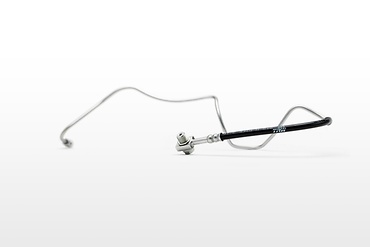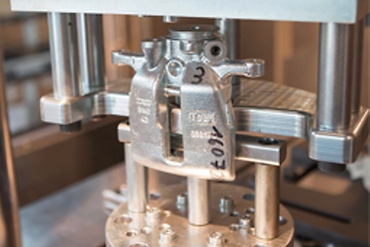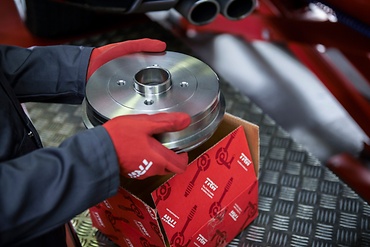Unlike brake pads or brake discs, handbrake cables are not exposed to high mechanical stress, but are still subject to a certain amount of wear.
For example, their polyamide coating can be damaged by outside influences such as whirled up rocks, allowing water and dirt to penetrate. This results in corrosion. The cable swells and can no longer glide without resistance. The handbrake can still be actuated in most cases, but can no longer be properly released.
How-to-guide
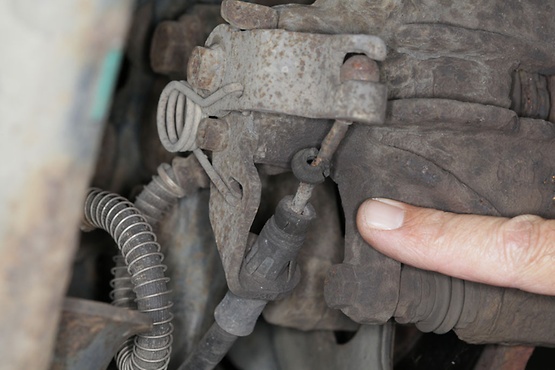
- Dragging of the brakes and resulting great wear
- Overheated brakes
In the worst case, the handbrake can no longer be released and the vehicle no longer moved. Since such defects are not uncommon (in Europe, handbrake cables are replaced in 2 percent of all vehicles yearly), regular testing should be performed.
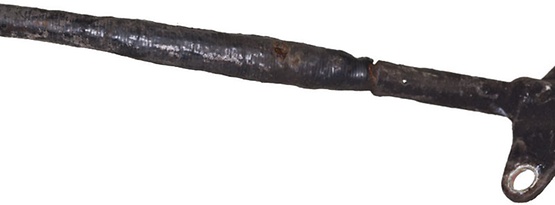
A first diagnosis can be performed on a roller brake tester. There must be no significant braking deceleration on the test bench without the handbrake being actuated. If there are increased braking values, the handbrake cables may well be the reason for it. The vehicle must be inspected on the vehicle lift for a detailed diagnosis.
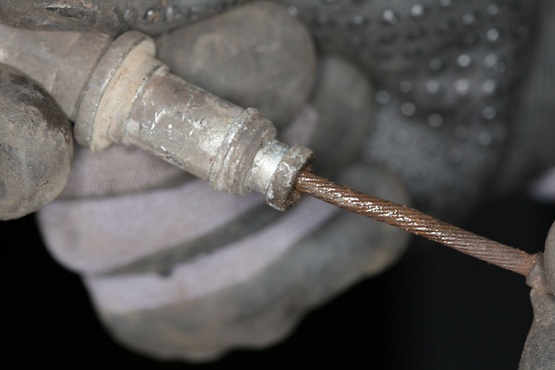
First check whether all wheels rotate freely with the handbrake released. If the wheels cannot rotate freely, a visual inspection of the handbrake cables can provide information on whether they are to be replaced.
Even minor damage to the coating or sealing collar will cause the handbrake to malfunction over time. In this case, TRW recommends replacing the handbrake cables.
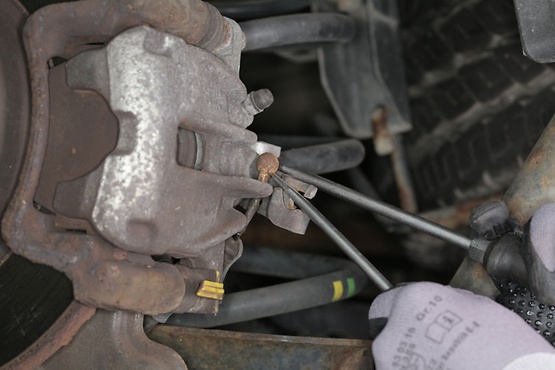
The brake drum must be removed in case of a drum brake system. Then, the handbrake lever is actuated to check whether the handbrake mechanism functions perfectly.
With the handbrake released, the brake shoes should be entirely in their original position. If in doubt, detach the handbrake cables and check them individually.
In case of a brake caliper with handbrake mechanism, unhinge the handbrake cables and check whether the wheels rotate freely. If the wheels can be rotated freely after disassembly, the handbrake cables must be replaced.
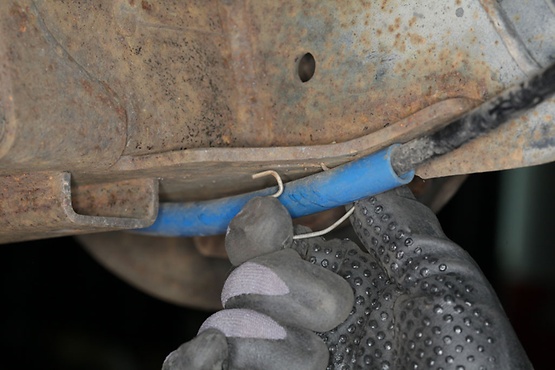
After unhinging the handbrake cable from the handbrake lever, it is unclipped from the holder at the brake caliper.
Then the holders of the handbrake cables are removed from the car body.
Now the connection of the handbrake cables is unhinged on the cable length adjustment and the handbrake cables are unclipped.
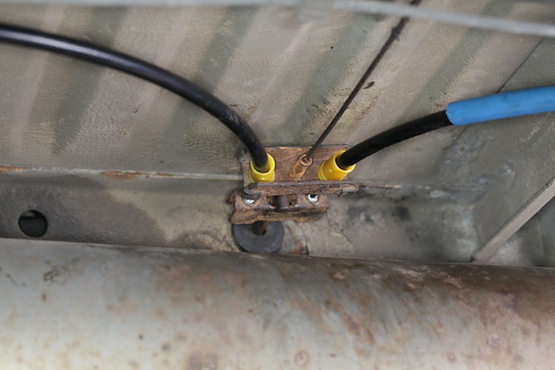
Before installing the new handbrake cable, compare it with the removed cable to ensure that it can be mounted without any problems. Pay special attention to the length and the connection at the beginning and end.
The different-colored handbrake cables make identifying them easier. In this case, the yellow handbrake cable is to be installed on the right side and the blue one on the left side.
Now snap the handbrake cables into the connection. It is important to pay attention to the correct position of the cable (yellow right; blue left).
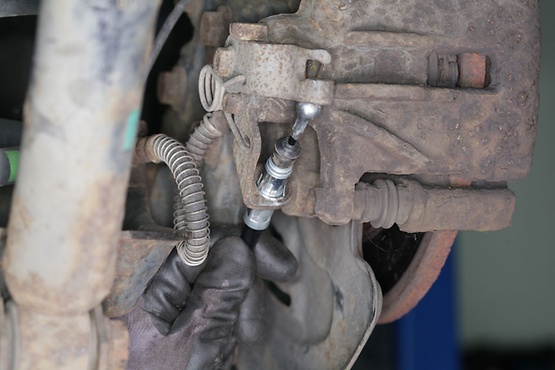
Once the connection has been hooked into the cable length adjustment, the handbrake cables are to be attached to the holders in the car body. The handbrake cable holder on the brake caliper must also be cleaned and the handbrake cable snapped in.
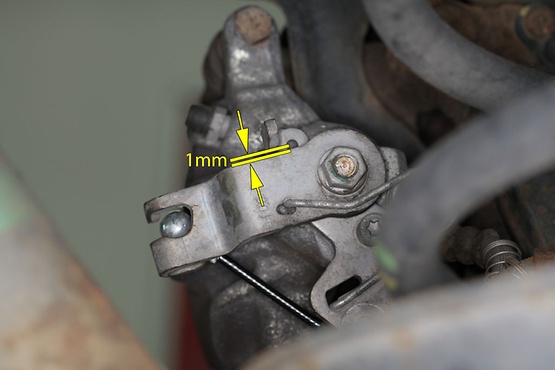
Then the new handbrake cable is hooked into the handbrake lever. After the cable length adjustment has been sprayed with rust remover (allow it to work for a few minutes!), adjust it in such a way that the handbrake lever on the brake caliper has approx. 1 mm running clearance to the end stop.
The handbrake function is tested by actuating the handbrake lever. It should not be possible to actuate the handbrake lever more than three notches.
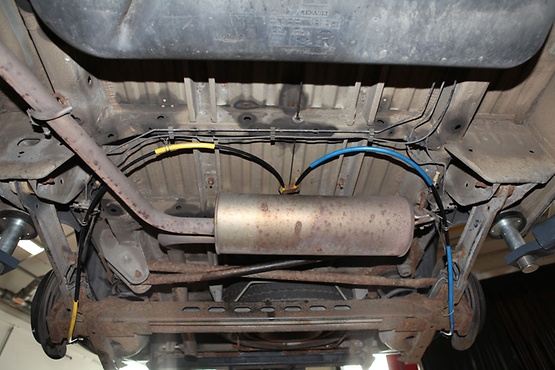
The handbrake function must be tested again on the roller brake tester after a test drive.
Nice-to-know
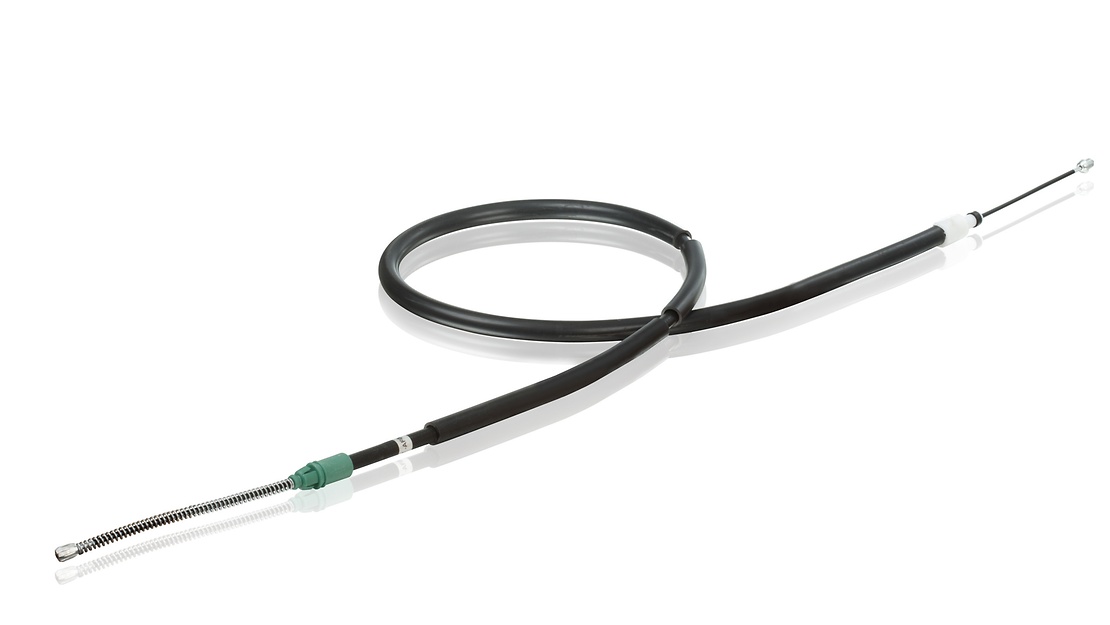
ZF Aftermarket product range
Discover the complete portfolio of brakes in our product catalog.
